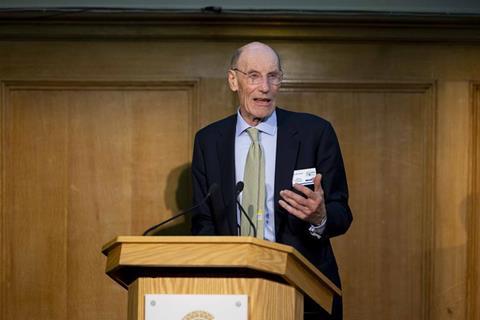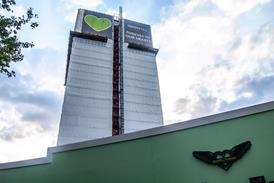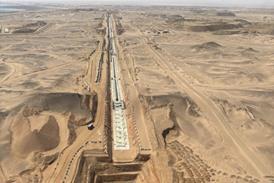John Armitt will chair NIC until July as it moves towards merger with IPA
The government’s top infrastructure advisor has hit out at the governance of HS2 and warned against giving ministers more power over the project.
The high speed rail project has been repeatedly cut back as it has faced huge delays and cost overruns, with ministers recently moving to take more oversight of the scheme in house.

But according to John Armitt, chair of the National Infrastructure Commission (NIC), the heavy involvement of political figures in the project’s governance has been a major contributor to its failures.
“I have to confess, I’ve never been convinced by the governance structure of HS2,” Armitt told the House of Commons transport committee earlier this week.
“Maybe I’m influenced too much by my own experience, but having been chair of the Olympic Delivery Authority, where we were a separate standalone body with our own ability to to hire and fire, with our own ability to get on and be given significant delegated powers, I think the retention of HS2 Ltd within the Department of Transport can lead to too much oversight, quite frankly.”
Armitt’s appointment as chair of the NIC, which provides expert, independent advice to the government, has been extended for six months to July in order to facilitate the merger of the organisation with the Infrastructure and Projects Authority.
The pair of agencies will be replaced by the National Infrastructure and Service Transformation Authority, which was a Labour Party manifesto commitment.
Warning against further political control of schemes, Armitt noted that “transport is an intensely political area” and said he understood it being “very difficult for ministers to stand back”
“They’re the ones who, at the end of the day, have to stand up here and defend what’s happening,” he said.
> Also read: HS2 submits revised designs for Grimshaw’s Curzon Street station
“On the other hand, that is bound to lead to delays, it’s bound to lead, I fear at times, too much desire to actually meet every concern and objection and requirement for extra facilities within a scheme.
“I think it’s 12,000 local agreements which HS2 had to make after the hybrid bill.
He said there was a risk that “in order to just make progress, you just say okay,” and that “every time you say okay, then unfortunately, that’s potentially more delay, but certainly extra cost.”
He continued: “I think there is a natural inevitability that when government, by that, I mean the whole machinery of government is doing something there is a desire to actually please people, rather than a rather more private sector approach, which says, ‘Sorry, I have not got any more money, That is all we can afford’.”
“Government is not very good at saying that.”
Addressing lessons learnt, he noted the impact of the decision to determine a route internally, which he contrasted with the approach taken on HS2, where a number of routes were proposed which were the subject of public debate.
“If you do that internally and then produce a route which is dropped out onto the public, it’s not surprising if you then get rather a strong kick and push back,” he said.
















No comments yet